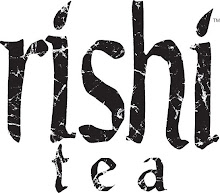In the 1920's, the Japanese introduced assam tea plants to Taiwan and for many decades, Taiwan was famous for high quality black tea, much of it consumed domestically or in Asia.
5 year old Hong Yue black tea farm in Nantou.
Hong Yue, as translated from Chinese means "Red Jade" or Ruby. This special breed of tea bush is a cross of Burmese Wild Tea and Taiwan Wild Tea. Ruby Black as we call it or Hong Hue, is the premier black tea cultivar in Taiwan and renders a very unique character if processed with skill. Ruby Black has a distinctive aroma of Clove, Wintergreen, Camphor, Red Date, Raisin and Cinnamon. Ruby Black brews a very assertive, strong flavored cup with a deep red infusion color and is best for gong fu cha style brewing, using a lot of leaf and short infusion times to yield multiple cups from the same serving of leaf.
One of our employees, Susana, tried it and had this to say, "There are teas that make me stop and smile and this is one of those! I filled my guywan about two thirds of the way with leaves, used 19o degree water and brewed about 16 infusions! My infusions were only seconds long. The aroma of camphor and wintergreen is very prominent. I highly recommend this truly special tea. I'm really into organic farming practices, so it's great to see the images of the garden."
Too small for organic certification, but we still cultivate Hong Yue without pesticides or chemicals.

The yellow flowers seen are related to peanut. A little portion is planted in the tea garden and it spreads rapidly, creeping along the ground. They are planted in the tea farms because they are nitrogen fixing herbs and help to nurture young tea bushes. They hold moisture in the soil. Their root systems aerate the soil and create an environment where beneficial bacteria thrive thus providing nutrition and nitrogen to the tea plants in place of fertilizers. After some time, they are mulched into the soil when the tea trees are older and stronger.
The nitrogen fixing herb's roost system is dense and protects the soil and holds moisture in the soil.









